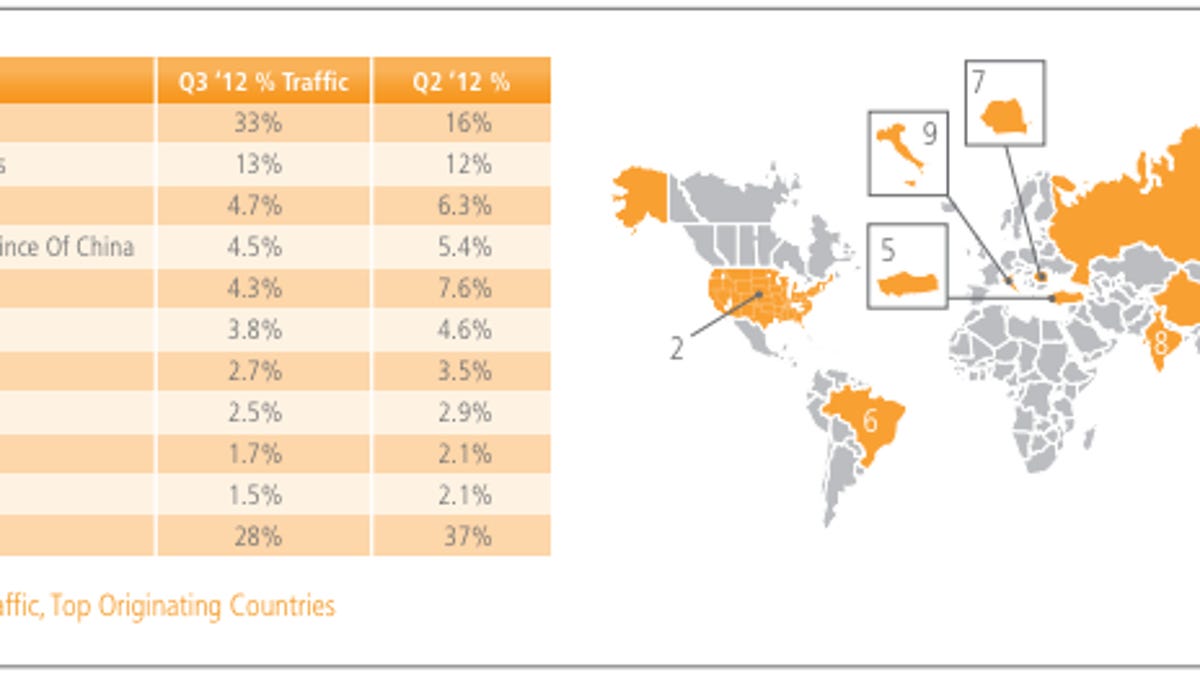Akamai: A third of cyberattacks come from China
The company also says the U.S. still has a long way to go to catch up with No. 1 South Korea in terms of average broadband speed, but the gap narrowed a bit in the third quarter.

Along with the cyberattack data, Akamai found that broadband speeds in the U.S. are still less than half those in No. 1 South Korea, but the gap narrowed a bit in the third quarter. The average measured connection speed in the U.S., at No. 9 on the list, was 7.2Mbps versus South Korea at 14.7Mbps. In the second quarter, the U.S. was at 6.6Mbps while Korea was at 14.2Mbps.
Overall, the global average connection speed slid by about 6.8 percent to 2.8Mbps from the second to third quarter. Despite the sequential decline, the global average connection speed climbed 11 percent from the previous year.
The U.S. doesn't even rank in the top 10 in terms of peak connection speed, instead coming in at No. 14 with speeds of 29.6Mbps. Countries like Latvia and Romania even boast faster peak connections than the U.S.

